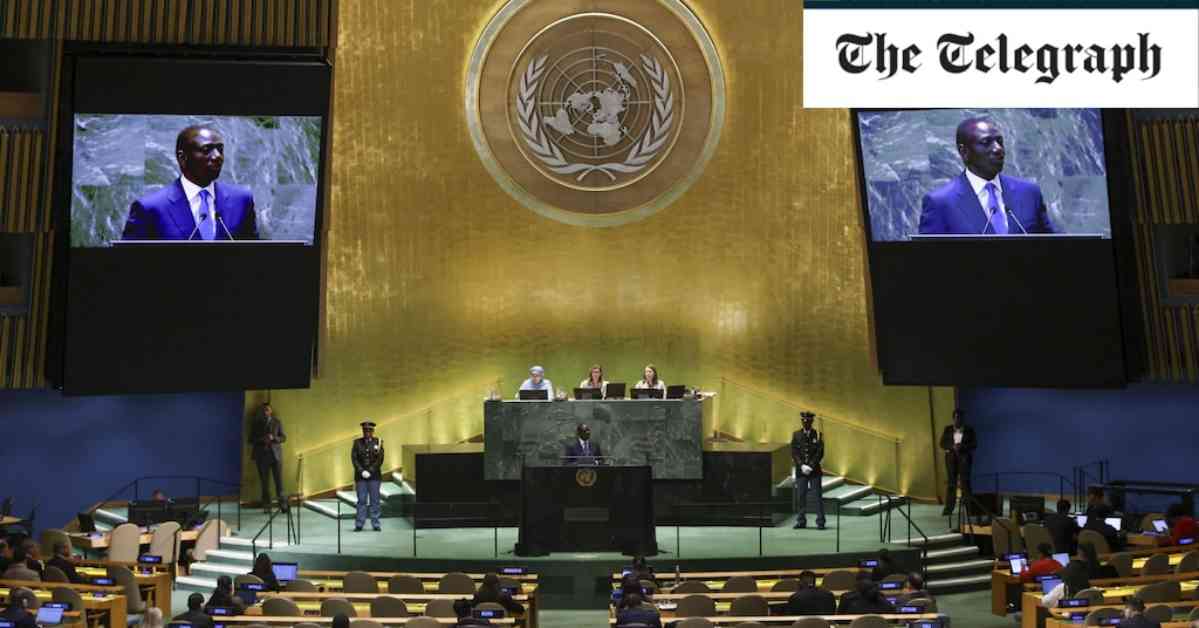World Leaders Unite to Combat Superbugs
In a landmark decision at the United Nations General Assembly in New York, world leaders from all countries have pledged to significantly enhance their efforts in the fight against antimicrobial resistance (AMR), a growing threat to modern medicine. The newly approved political declaration aims to address the escalating issue of AMR, which poses a serious risk to global health and could potentially roll back decades of medical progress.
AMR is primarily caused by the misuse and overuse of antimicrobial medicines, such as antibiotics, leading to the development of resistant microbes that are no longer effectively combated by these drugs. This phenomenon makes infections more difficult to treat and can result in severe consequences, including increased mortality rates. The misuse of antibiotics is a global concern, with health facilities often serving as breeding grounds for treatment-resistant infections that can spread rapidly.
The burden of treatment-resistant infections is particularly heavy in low- and middle-income countries (LMICs), where limited access to clean water, strained health systems, and inadequate resources exacerbate the problem. In these regions, approximately 11% of individuals who undergo surgery end up acquiring infections during the process, highlighting the urgent need for improved healthcare infrastructure and resources.
Sepsis in newborns is a poignant example of the challenges faced in LMICs, where inadequate sanitation and limited access to medical care contribute to the spread of drug-resistant infections. The lack of enforcement of regulations further compounds the issue, making it difficult to control the proliferation of AMR in these vulnerable populations.
Global Impact of Antimicrobial Resistance
AMR knows no borders and can impact even the most dire circumstances, such as conflict zones where access to healthcare is severely limited. From war-torn regions like Gaza to Sudan and Ukraine, the prevalence of drug-resistant infections complicates the treatment of injuries sustained in conflict. The movement of individuals across borders, including medical evacuations and care for both civilians and soldiers in hospitals, facilitates the spread of AMR beyond the confines of conflict zones.
The escalating death toll associated with AMR highlights the urgent need for coordinated global action to address this growing crisis. The limited availability of new antibiotics further exacerbates the situation, with only a handful of innovative antibiotics authorized since mid-2017. The pace of research and development in this critical area needs to be accelerated to keep pace with the evolving threat of AMR.
Key Commitments to Combat AMR
The newly approved political declaration in New York outlines key commitments and targets to tackle AMR across human health, animal health, agriculture, and the environment. These commitments include reducing global deaths attributed to drug-resistant bacteria by 10% by 2030 and ensuring that at least 70% of antibiotics used for human health belong to the safer WHO Access group to minimize the risk of AMR.
Efforts to enhance access to life-saving antimicrobial medicines in LMICs are crucial to curbing the spread of AMR and reducing preventable deaths. By investing in critical interventions and strengthening healthcare systems in vulnerable regions, the global community can make significant progress in combating the threat of AMR.
The investment case for addressing AMR is compelling, given the substantial cost of inaction. Estimates suggest that failure to mount a robust response to AMR could result in healthcare expenditures reaching as high as US$ 412 billion annually in the next decade. Additionally, workforce participation and productivity losses are projected to amount to US$ 443 billion, underscoring the economic implications of unchecked AMR.
The Role of AMR Survivors in the Fight Against Superbugs
The voices of AMR survivors, such as Ella and John, serve as powerful reminders of the human toll of antimicrobial resistance. Ella, who battles cystic fibrosis, had to rely on experimental treatments after contracting a severe drug-resistant infection. Similarly, John experienced complications following a routine surgery, leading to a prolonged hospital stay due to a drug-resistant infection that compromised his health.
The personal stories of individuals like Ella and John underscore the urgency of addressing AMR and placing those affected at the center of the response. By prioritizing sustainable financing, accountability measures, and innovative solutions, the global community can work towards a future where AMR is effectively controlled and the threat of superbugs is mitigated.
Moving Forward: A Call to Action
As world leaders commit to boosting efforts against superbugs, it is imperative that they follow through on their promises and turn their commitments into tangible actions. By investing in research and development, strengthening healthcare systems, and promoting responsible antibiotic use, the global community can make significant strides in combating AMR and safeguarding the future of modern medicine.
The fight against superbugs requires a concerted global effort that transcends borders and prioritizes the well-being of all individuals. By working together to address the root causes of antimicrobial resistance, we can create a safer and healthier world for future generations. Let us heed the call to action and join forces in the battle against superbugs for the benefit of all.












